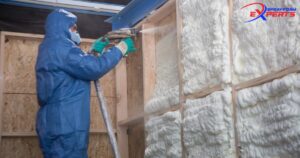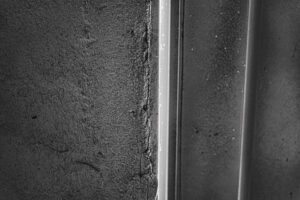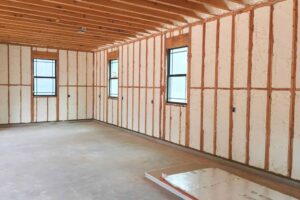Imagine a house free of drafts, with lower energy expenses and no noise. That sounds fantastic, doesn’t it? Spray foam insulation claims to provide all of these. But before you begin celebrating your success in finding the insulation to meet all your needs, let us first take a step back and understand.
There are a few things to consider before applying foam to your walls. We’re here to help you make smart choices about spray foam insulation. Get ready to learn about hidden fees, potential downsides, and the questions you should ask before investing.
Prepare to look behind the fuss around spray foam insulation. Let’s simplify the foam so you can make the best decision for your home and your money.
Before spray foam installation, consider the following:
Building Type and Structure
Understanding the distinctions between building types and structures is critical for a successful foam insulation installation. Whether it’s a residential, commercial, or industrial building, each has distinct qualities that influence the choice of foam insulation.
- Residential
Residential structures have different layouts necessitate a specialized strategy to address thermal dynamics.
- Commercial
Commercial areas necessitate customized techniques to fulfill business demands.
- Industrial
Industrial environments need careful consideration of aspects such as building materials and adherence to industry standards.
The building’s composition, whether wood, concrete, or steel, is essential in selecting the most efficient insulation technique. A comprehensive examination of the building type and structure is critical for choosing the appropriate insulation. This is to attain maximum energy efficiency and comfort.
Climate and Environmental Conditions
Climate and the environment have an essential effect on installation success. The breathability of open-cell spray foam is preferred in hot, humid conditions, but closed-cell spray foam provides excellent insulation and moisture resistance in cooler climates.
Consider local temperature changes and condensation difficulties. Remember, even the best foam needs appropriate ventilation to prevent moisture buildup and preserve peak performance in any environment. So, understand the area’s weather patterns and consult an expert to guarantee your spray foam weathers the storm.
Energy Efficiency Goals
Whether it’s lowering heating and cooling expenses in homes or improving energy use in commercial or industrial buildings, matching insulation options to efficiency goals is crucial. The correct insulation can help achieve these objectives by reducing thermal energy transfer and producing a well-insulated atmosphere.
People and businesses may make intelligent choices about the kind and application of foam insulation by recognizing and prioritizing energy efficiency goals. This results in a cost-effective and ecologically friendly solution for their needs.
Budget Considerations
Let’s be honest: home improvement is rarely inexpensive, and insulation is no exception. While it offers long-term energy savings, the initial expense might be significant. Open-cell is a more affordable choice, but closed-cell gives excellent performance at a higher cost.
To figure out a reasonable budget, consider the space that needs insulation, the foam types you’ve chosen, and expert installation expenses.
Don’t forget to investigate any rebates or incentives available in your location. Remember, while money is essential, emphasize quality and experience to avoid future challenges that may exceed earlier savings.
Health and Safety Concerns
Health and safety are essential factors when planning an insulation installation. The chemicals used in spray foam may cause problems during installation if not handled correctly. Proper ventilation and safety precautions are needed to reduce exposure and health risks.
Individuals with respiratory disorders or allergies should exercise extra caution. Choosing a reputable and competent contractor, following safety requirements, and ensuring enough ventilation are all crucial factors in addressing health and safety concerns.
Professional Installation and Expertise
While spray foam may appear simple, the complexities of appropriate application, mixing, and exact installation processes need expertise. Hiring qualified professionals guarantees that the insulation is placed properly, sticks firmly, and efficiently plugs gaps and fractures.
Their knowledge also enables smart positioning to improve energy efficiency. Attempting a DIY technique could lead to inadequate results, jeopardizing the insulation’s efficiency. Individuals and companies may accomplish a seamless and successful insulation application by contracting the installation to experts.
It results in long-term energy efficiency and comfort improvements.
Also Read: Can Spray Foam Insulation Be Used in All Types Of Buildings?
Empower Your Space with Successful Spray Foam Insulation Installation
Trust is essential when improving your living or working area with spray foam insulation’s benefits. Spray Foam Experts has a track record of completing excellent spray foam insulation installations. Our professionals ensure that each project is personalized to your precise demands, from navigating building types and structures to resolving climate and health and safety concerns.
With a commitment to quality and intent on meeting your energy efficiency objectives, Spray Foam Experts is your reliable partner in producing a sufficiently insulated and cost-effective environment.




